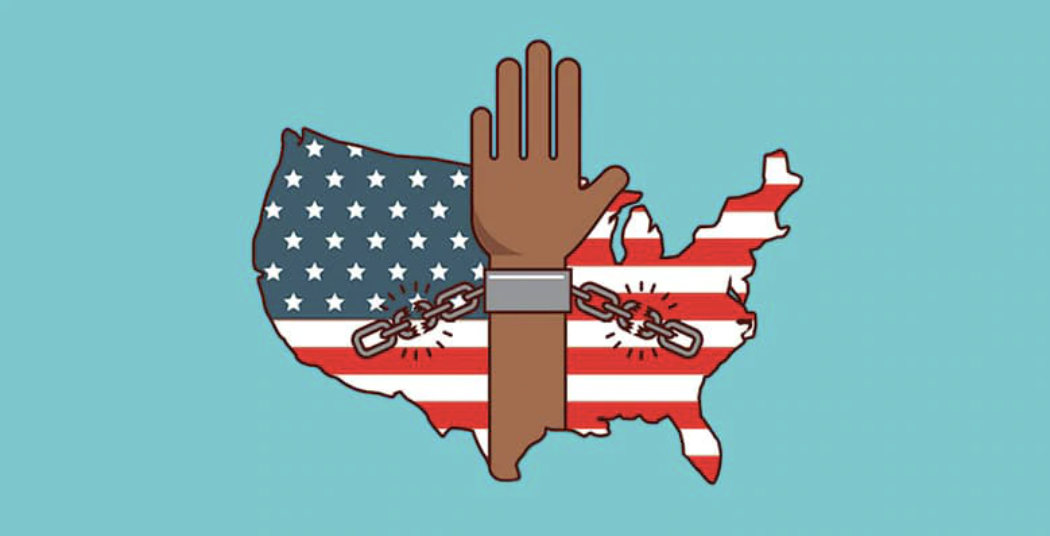In an interview published in the Thursday, June 18 edition of “The Wall Street Journal,” President Donald Trump was quoted saying that he single handedly made Juneteenth– an unofficial American holiday commemorating the end of slavery– “very famous.”
According to Trump, “nobody had ever heard of” the holiday until last week, when he was criticized by Black Lives Matter supporters for scheduling his first rally since the pandemic began June 19 at the same site where Black Wall Street was burned down 99 years ago.
While the assertion is untrue, it does raise the unique opportunity to delve into the history of a holiday that is widely celebrated, often misunderstood, and– in times of such great racial division and tension– is as important as ever.
So, for those who may not be as educated as you’d like on the subject, this one’s for you.
But first, to be clear, President Trump (or anyone claiming to do so in the year 2020) did not make Juneteenth “famous.” In fact, it is recognized as the oldest and most popular known U.S. celebration of the end of slavery, as well as an official Texas state holiday and has been recognized for the past two years by the Trump administration in official White House statements.
What is Juneteenth?
While American history teachers commonly teach that slavery ended when President Abraham Lincoln signed the Emancipation Proclamation in 1863, that is far from the truth. Legally, yes, U.S. slavery ended on January 1, 1863. In practice, however, it lasted for over another two years—31 months and 19 days, to be exact.
There are many theories on the delayed relay of information and action, but one part of history is for certain: On June 19, 1865, Major General Gordon Granger and the Union soldiers arrived in Galveston, Texas, the last place in the Confederacy holding enslaved Black Americans.
Upon arrival, their first order of business was to inform slaves that the Civil War had ended and, therefore, slavery had been abolished. On this day, Granger delivered General Order No. 3, which, according to the Texas State Library and Archives Commission, read:
“The people of Texas are informed that, in accordance with a proclamation from the Executive of the United States, all slaves are free. This involves an absolute equality of personal rights and rights of property between former masters and slaves, and the connection heretofore existing between them becomes that between employer and hired labor. The freedmen are advised to remain quietly at their present homes and work for wages. They are informed that they will not be allowed to collect at military posts and that they will not be supported in idleness either there or elsewhere.”
Understandably, the news kicked off widespread celebrations across the state and, thus, Juneteenth was born.
But during post-Civil War Reconstruction and into the second world war, former Confederate states held little, if any, respect for the holiday, and celebrations became more the responsibility of grass-roots organizers. As a result, few American history curriculums cover it, and many Americans across the country remain unfamiliar with the monumental event.
In the middle of the 20th Century, the U.S. saw a resurgence of Juneteenth celebrations, partly due to it becoming an official Texas state holiday in 1980. Today, Juneteenth is widely recognized as not only the freeing of the last of Black American slaves, but also as a celebration of Black American culture and everything Black Americans have contributed to this country.
How can you celebrate?
Now more than ever, local activists and organizers are planning community events to celebrate what happened in Galveston 155 years ago. A quick search on social media should bring back a variety of results from festivals to readings, especially for those residing in big cities.
There are plenty of opportunities for those remaining in the Miami area, one of which includes Miami Film Festival’s online screening of “When Liberty Burns”– a black-produced film detailing the life and legacy of Arthur McDuffie. McDuffie was murdered by Miami-Dade police forty years ago and his death sparked the “Miami Riots,” then deemed the deadliest riots since the 1960s and remained as such until the 1992 Los Angeles Riots.
For those looking to celebrate in other ways, Juneteenth is the perfect opportunity to begin supporting black-owned businesses. Social media is crawling with city-specific lists, most of which are small and greatly depend on the support of local consumers. For anyone who simply does not know where to start, here is a list generated by Forbes earlier this month.
Featured image from Pinterest.






